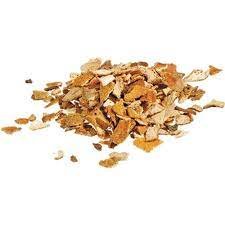Is Saffron Milk Good for Pregnant mothers? 5 Essential Safe Health Tips
Table of Contents
- Introduction
- Scientific Insights: How Saffron Works in the Body
- Saffron vs. Other Traditional Pregnancy Herbs
- Culinary Ideas for Expecting Mothers
- Saffron Storage Tips for Pregnant Moms
- Myths vs. Facts Section
- FAQs Expansion with Reader Concerns:
- Conclusion
Introduction
Saffron, often called “red gold,” is celebrated not only for its vibrant color and luxurious flavor but also for its remarkable health benefits. During pregnancy, this precious spice can support mood, digestion, sleep, and muscle relaxation when used mindfully. Beyond the familiar saffron milk, it can be incorporated safely into a variety of pregnancy-friendly recipes, from delicate rice dishes to mild desserts and teas.

Is Saffron Milk Safe for Pregnant Mothers?
Saffron milk provides several potential benefits during pregnancy, but it should always be consumed in moderation and at appropriate times. The following points outline the essential information expectant mothers should know:
Potential Benefits of Saffron Milk for Pregnant Mothers
• Mood Enhancement:
During pregnancy, hormonal changes often lead to emotional fluctuations and mood swings. Research suggests that saffron may have antidepressant properties by supporting the release of serotonin in the brain. This effect can help reduce anxiety and promote a more stable, positive mood.
• Aids Digestion:
Digestive discomforts such as constipation, bloating, and gas are common during pregnancy. Saffron may support digestion by enhancing blood circulation to the digestive tract and encouraging better metabolic function, which can ease these issues.
• Promotes Better Sleep:
Sleep disturbances are a frequent concern during pregnancy. Saffron contains mild sedative properties that may help calm the body and mind, supporting deeper relaxation and improving overall sleep quality.
• Regulates Blood Pressure:
High or fluctuating blood pressure is a common concern during pregnancy. The antioxidants in saffron may contribute to better regulation of blood pressure, supporting cardiovascular health and overall well-being.
• Relieves Muscle Cramps:
Muscle cramps and joint discomfort often increase during the later stages of pregnancy. Saffron’s natural anti-spasmodic properties may help relax muscles, easing cramps and reducing pain, particularly in the third trimester.
• Boosts Heart Health:
Saffron contains antioxidants such as crocin and crocetin, which may support heart health by helping to lower cholesterol and triglyceride levels. This protective effect can contribute to better cardiovascular function during pregnancy.
Important Precautions and Risks
• Moderation is Key:
- During pregnancy, saffron should always be consumed in very small amounts. Excess intake typically more than 5 grams per day can be toxic and may trigger uterine contractions, increasing the risk of miscarriage or premature labor. For safe use, a common guideline is to limit intake to just 1–2 strands daily.
• Timing of Consumption:
- Saffron is generally not advised during the first trimester, when the risk of miscarriage is highest. Some evidence suggests it may stimulate uterine contractions during this sensitive stage. Most guidelines recommend introducing saffron only from the second trimester onward, when it is considered safer in moderation.
• Consult Your Doctor:
- Before adding saffron or any new food or supplement to your diet during pregnancy, it is crucial to seek guidance from your healthcare provider. They can offer personalized recommendations based on your individual health and pregnancy needs.
• Allergic Reactions:
- A small number of individuals may be sensitive to saffron, experiencing side effects such as dry mouth, nausea, or increased anxiety. If any adverse reactions occur, discontinue use immediately and consult your healthcare provider.
• Myths Debunked:
- A widespread cultural belief suggests that consuming saffron during pregnancy can lead to a fair-skinned baby. This is a myth with no scientific support. An infant’s complexion is determined entirely by genetics, not by maternal diet.
Conclusion:
Saffron milk can serve as a valuable addition to a pregnant woman’s diet, providing multiple potential health benefits. Nevertheless, it is essential to consume it in moderation, begin only after the first trimester, and consult a healthcare professional to ensure safe and appropriate use.
Myths vs. Facts About Saffron During Pregnancy
Myth | Fact |
Saffron makes the baby’s skin fairer. | A baby’s complexion is determined by genetics. Maternal diet, including saffron consumption, does not influence skin tone. |
More saffron strands equal more benefits. | Excess saffron can be toxic and dangerous, especially during pregnancy. Small, controlled amounts (1–2 strands per day) are safe and effective. |
Saffron can prevent miscarriage. | Saffron cannot prevent or treat miscarriage. In fact, large doses may increase the risk of uterine contractions. |
Saffron is unsafe in all forms. | Whole saffron threads used in moderation are safe after the first trimester. Avoid adulterated powders and excessive doses. |
Saffron alone boosts mood or sleep. | While saffron may support mood and relaxation, it should complement healthy sleep habits, balanced nutrition, and medical guidance, not replace them. |
Scientific Insights: How Saffron Works in the Body
Saffron has been used for centuries in traditional medicine, but modern research helps explain why it is effective. Its impact on the body is largely due to combination of bioactive compounds, primarily crocin, crocetin, picrocrocin, and safranal. These compounds interact with multiple physiological systems, offering a range of benefits.
1. Antioxidant Activity
Saffron’s bioactive compounds, particularly carotenoids and terpenes like crocin and crocetin, function as potent antioxidants. By neutralizing free radicals, they help reduce oxidative stress in cells, protecting tissues from damage and supporting overall health. These antioxidant effects may also contribute to cardiovascular and metabolic well-being.
2. Serotonin Regulation and Mood Support
Studies suggest that saffron can influence serotonin levels in the brain, a key neurotransmitter involved in mood regulation. By modulating serotonin activity, saffron may help reduce mild depression, anxiety, and mood swings which are common during pregnancy. This scientific insight aligns with its traditional use as a calming and mood-enhancing herb.
3. Anti-Spasmodic Effects
Saffron possesses mild muscle-relaxing properties that can help alleviate common pregnancy discomforts, such as leg cramps or gastrointestinal spasms. These effects are largely linked to its bioactive compounds interacting with smooth muscle tissue, offering gentle relief without harsh side effects.
4. Digestive Stimulation
Saffron has traditionally been used to support digestion, and modern research suggests it may enhance blood flow to the digestive tract and promote the production of digestive enzymes. These effects can help alleviate common pregnancy-related digestive issues such as bloating, gas, and constipation.
5. Sleep and Relaxation
Saffron contains mild sedative compounds, primarily safranal, which can promote relaxation and enhance sleep quality. This effect is particularly beneficial during the later stages of pregnancy, when sleep disturbances are common.
Connecting Tradition to Science
Centuries of traditional use in regions such as India, Persia, and the Middle East align closely with modern scientific findings. Claims that saffron supports mood, digestion, and relaxation are now backed by research, highlighting how this ancient spice continues to provide both culinary enjoyment and tangible health benefits.
Saffron vs. Other Traditional Pregnancy Herbs
During pregnancy, many natural remedies are sought to support overall wellness, digestion, mood, and sleep. Among these, saffron offers unique benefits that set it apart. The following comparison highlights how saffron measures up against other commonly used, pregnancy-safe herbs:
Herb | Primary Benefits During Pregnancy | How Saffron Stands Out |
Saffron | Mood enhancement, improved digestion, better sleep, mild relief from muscle cramps, antioxidant support | Combines multiple benefits in very small amounts, with a unique ability to support both mental well-being and physical comfort. Its aromatic flavor also enhances foods and beverages without strong spiciness. |
Turmeric | Anti-inflammatory, supports immunity, may aid digestion | While turmeric is excellent for inflammation, its flavor is stronger and may not be suitable for everyone during pregnancy. It primarily targets physical inflammation rather than mood or sleep. |
Ginger | Reduces nausea, improves digestion, may ease morning sickness | Ginger is very effective for nausea, especially in the first trimester. Saffron, by contrast, is generally avoided in early pregnancy, but it helps more with mood, relaxation, and sleep in later stages. |
Fennel | Relieves bloating, gas, and mild digestive discomfort | Fennel mainly aids digestion. Saffron not only improves digestion but also provides antioxidants and mood support, offering a broader spectrum of wellness benefits. |
Chamomile | Promotes relaxation, reduces anxiety, improves sleep | Chamomile is a calming herbal tea, but saffron adds a unique aroma, color, and additional antioxidant properties, while supporting mental health and easing mild muscle cramps. |
Peppermint | Soothes digestive discomfort, reduces bloating and gas | Mainly digestive support; limited mood or sleep benefits |
Key Takeaway
Saffron’s versatility distinguishes it as a valuable herb for prenatal wellness. Unlike many herbs that address only a single concern, saffron offers combined benefits for mood, digestion, and sleep, while also adding culinary richness. This unique combination has made it a cherished element of traditional pregnancy diets.
Culinary Ideas for Expecting Mothers
Saffron is a versatile spice that can be safely added to pregnancy-friendly meals and beverages, offering both flavor and subtle health benefits. Here are some easy ways to incorporate saffron beyond traditional saffron milk:
1. Light Rice Dishes and Biryani
- Steep a few saffron strands in warm water or milk and add to steamed basmati rice or a mildly spiced biryani.
- Saffron enhances the color, aroma, and flavor without overwhelming the dish.
- Use gentle seasonings to ensure the dish remains suitable for pregnancy.
2. Mild Desserts
- Saffron complements desserts such as kheer (rice pudding), custards, and yogurt-based treats.
- Use only a few strands of saffron and minimal sugar to impart flavor and a natural golden hue.
- These desserts provide a comforting, nutrient-rich option while ensuring saffron intake remains within safe limits.
3. Warm Saffron-Infused Beverages
- Saffron tea: Steep 2–3 saffron strands in warm water or herbal tea for a soothing, aromatic drink.
- Smoothies: Incorporate saffron threads into milk or yogurt-based smoothies with fruits like banana or mango for a nutrient-rich and visually appealing beverage.
- Always use saffron in moderation—2–3 strands per serving—to ensure safety during pregnancy.
Tips for Culinary Use During Pregnancy
- Soak saffron strands in warm liquid before adding them to dishes; this helps release their aroma, color, and beneficial compounds.
- Avoid using ground saffron powders, as they are more prone to adulteration.
- Use small amounts in each recipe to keep daily intake within safe limits.
Key Benefit
Adding saffron to meals and beverages enables expectant mothers to enjoy its distinctive aroma and flavor while gaining potential health benefits, all while maintaining safe and moderate usage.
Saffron Storage Tips for Pregnant Mothers
Proper storage of saffron ensures it retains its aroma, color, flavor, and health-promoting properties. For expectant mothers, maintaining quality is especially important to maximize benefits while avoiding contamination.
- Use an Airtight Container: Store saffron threads in a small, airtight glass jar to prevent exposure to moisture and air, which can degrade the spice.
- Keep Away from Light: Saffron is sensitive to light, which can fade its vibrant color and reduce potency. Store it in a dark cupboard or opaque container.
- Maintain a Cool, Dry Environment: Avoid humid areas like near the stove or sink. A cool, dry place helps preserve both flavor and bioactive compounds.
- Avoid Contact with Strong Odors: Saffron easily absorbs other scents. Store it separately from spices with strong aromas like garlic, curry powders, or coffee.
- Use Small Quantities: Only keep a small, daily-use amount accessible, while the rest remains sealed to maintain long-term freshness.
- Check Freshness Periodically: Fresh saffron retains its deep red color and intense aroma. If it becomes pale, brittle, or loses scent, it’s best to replace it.
Tip for Pregnant Moms:
Even tiny amounts (1–2 strands per day) are sufficient for both flavor and potential health benefits, so careful storage ensures you always have potent saffron ready for safe, everyday use.
FAQs Saffron
Can men benefit from saffron while their partner is pregnant?
Yes. Saffron’s antioxidant and mood-enhancing properties are beneficial for anyone. For expectant fathers, it may help reduce stress, support emotional balance, and improve overall well-being, complementing the supportive environment for their partner.
How does saffron work in the body during pregnancy?
Saffron contains active compounds like crocin, crocetin, and safranal, which act as antioxidants, mild mood regulators, and anti-spasmodics. These compounds can help reduce oxidative stress, support emotional balance, calm muscle tension, and improve digestion. This explains why saffron has been traditionally used for both wellness and culinary enjoyment during pregnancy.
Can saffron be combined safely with other prenatal herbs or supplements?
In moderate amounts, saffron is generally safe to combine with other pregnancy-friendly herbs such as ginger, fennel, chamomile, or turmeric. However, always check with a healthcare provider, especially if you are taking prescribed prenatal supplements, to avoid interactions or overconsumption.
How is saffron different from other pregnancy-friendly herbs like turmeric or chamomile?
While herbs like turmeric support anti-inflammatory and digestive health, and chamomile promotes calm and sleep, saffron offers a unique combination of mood enhancement, digestive stimulation, anti-spasmodic effects, and antioxidant activity. Its distinctive flavor and color also make it versatile for culinary use.
What are some safe saffron-based recipes for pregnant women beyond milk?
Safe culinary options include:
- Mild biryanis or rice dishes infused with a few strands of saffron
- Desserts like kheer, custards, or pudding
- Warm saffron teas or smoothies
Always use minimal amounts (1–3 strands per serving) to ensure safety while enjoying flavor and health benefits.
How should saffron be stored to maintain its potency and safety?
Store saffron in an airtight container in a cool, dark place, away from light, heat, and moisture. Proper storage preserves both its flavor and medicinal properties. Avoid storing it in ground powder form, which is more prone to adulteration.
Are there any scientific studies supporting saffron’s benefits during pregnancy?
Yes. Research highlights saffron’s antioxidant activity, mood-enhancing effects, anti-spasmodic properties, and digestive support. While most studies focus on small doses, they support saffron’s traditional use for mild depression, anxiety, and digestive discomfort, emphasizing moderation.
Is it safe to consume saffron in desserts, rice dishes, or teas during pregnancy?
Yes, when used in small, culinary amounts (a few strands per serving). Saffron can safely enhance flavor, aroma, and appearance in dishes like rice, desserts, or warm beverages without posing risk, provided intake stays within recommended limits.
What are the common myths about saffron that expecting mothers should know?
- “Saffron makes the baby fairer” – A baby’s skin color is determined by genetics, not maternal diet.
- “More strands equal more benefits” – Excessive saffron is unsafe; a few strands daily are sufficient.
- “Saffron can replace medical care” – Saffron is a supportive supplement, not a substitute for professional prenatal guidance.
How can I ensure I’m buying authentic, high-quality saffron?
Look for deep red, trumpet-shaped threads without yellow parts. Avoid powders, which are often adulterated. A strong, aromatic scent is a reliable indicator of quality. Buying from trusted suppliers with certifications ensures purity, potency, and safety for pregnant women.
Conclusion
Saffron’s remarkable versatility makes it a valuable addition to prenatal wellness, offering antioxidant support, mood regulation, digestive aid, and gentle relaxation. From aromatic biryanis and mild desserts to soothing teas, this golden spice can be safely incorporated into a variety of pregnancy-friendly recipes when mindful of dosage, timing, and preparation. By understanding its scientific benefits, proper storage, and cultural significance, expecting parents can enjoy saffron thoughtfully, bridging tradition and modern prenatal care while enhancing both meals and overall well-being.



















